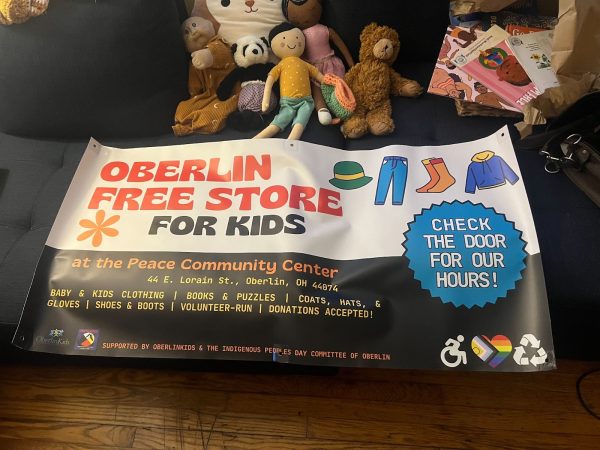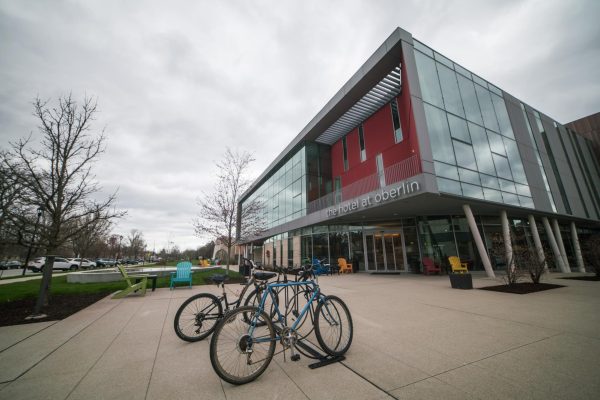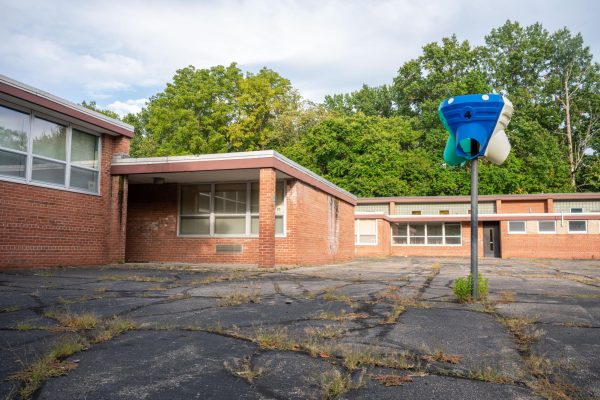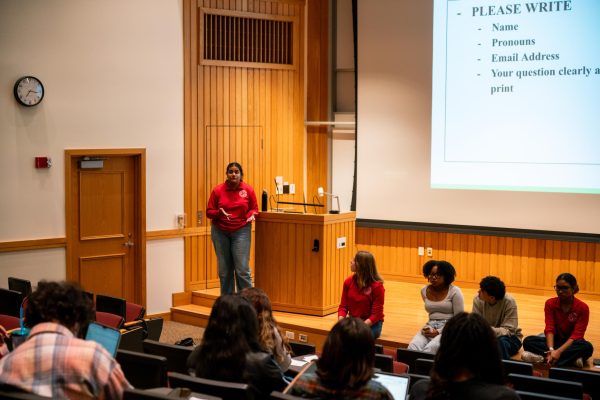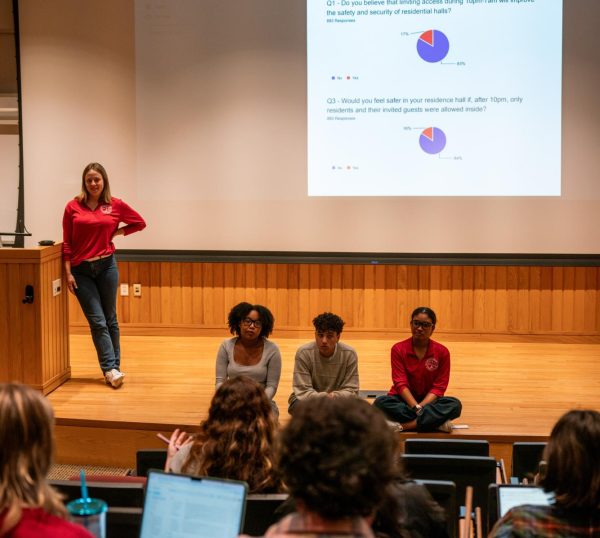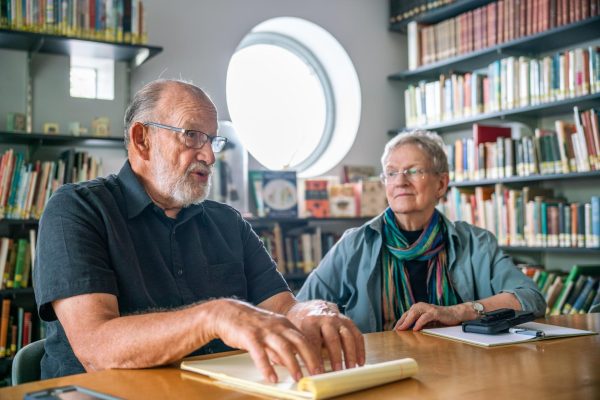Walking Tours Highlight Oberlin’s History
For those interested in learning more about Oberlin and its rich history, new walking tours are now available through the izi.Travel app or website. The free app can detect a user’s location and allows the user to listen to a tour while visiting a site at their own pace.
On May 11 from 2–3:30 p.m., the Oberlin Public Library will host a formal launch and introduction to the virtual tours. The event is an opportunity for the public to learn how to use the app and give feedback to the Coalition for Oberlin History, the original designers of the virtual tours. A reception will be held later that day at 4 p.m. at The Feve.
Emeritus Professor of History Gary Kornblith and other faculty members founded the Coalition for Oberlin History in 2017. For Kornblith and others from the Coalition, the launch of the app is the culmination of nearly three years of brainstorming, discussion, and hard work.
The idea for the app began when Kornblith and his wife Carol Lasser were traveling to an outdoor sculpture garden in Hamilton, Ohio, where they were able to use a phone app as a guide around the park.
“We both realized, ‘Gee, this would be a way of creating tours without having to locate those tours in one organization or another,” Kornblith said. “We brought that [idea] back to the Coalition, and everyone said, ‘This is interesting,’ and I volunteered to look up the options, how to create one of these tours, and what were the competing possibilities.”
The Coalition has partnered with many local groups in order to uphold its commitment in promoting diversity.
“We were talking about ways of presenting Oberlin history that would allow for multiple narratives rather than a single story,” Kornblith said. “If you’re a town booster connected to the Chamber of Commerce, you have your version of how Oberlin history has evolved, but if you are an African American whose family has been in town for multiple generations, the history of the community looks very different.”
For Oberlin College Library Archivist Ken Grossi, the Coalition was the perfect way for the College Archives to connect with the wider Oberlin community.
“[History] has always been a passion of mine,” Grossi explained. “I really feel fortunate that I’m in this position to be able to share the history.”
Kornblith explained that finding the izi.Travel app was very beneficial to the project.
“It had all the right features,” Kornblith said. “It was free. It was a do-it-yourself app, so you didn’t have to hand off your images to a third party that would then make a tour, but you could do it yourself..”
Kornblith and Grossi produced the tour, “Oberlin College: The First Century.” In designing the tours, Kornblith aimed for a 20-to-40 minute tour that inspire listeners and prompt more research.
“We’re trying to get people to learn a little bit about our history,” Grossi said. “Hopefully this inspires visitors, students, and community members to want to ask more and visit the archives.”
Kornblith is also optimistic that the tours will inspire curiosity.
“I hope that [the tours] will allow existing community members to learn about aspects of their town’s history that they might not have encountered before and to recognize that this history is rich, but it’s also complicated, it’s contested,” Kornblith said.
Additionally, the tours will offer a more in-depth account of Oberlin’s history beyond its renowned status as the first college to admit women and all students regardless of race.
President of the Oberlin African-American Genealogy and History Group and Coalition member, Phyllis Yarber Hogan says that only learning about Oberlin’s abolitionist history creates the impression to visitors that “Oberlin must be a utopia, free from racism.”
As a lifelong Oberlin resident, Hogan’s perspective is more complicated. Hogan’s contributions to the project include the “Oberlin’s African-American Community: Historic Groveland” tour, which informs listeners about people of color’s contributions to the town’s history. Adding her own touch, Hogan’s tour includes the voices of female Oberlin high school students of color who narrate each stop on the tour.
“My point in asking the high school girls to narrate the tour was so that they would then have to learn something about the women featured on the tour,” Hogan explained. “I also want the young African-American women in Oberlin to know that they stand in a place that produced and educated women who made great contributions to the history of this country.”
The launch event at the Oberlin Public Library does not mean that the virtual tour project is complete. Kornblith envisions virtual tours being used for College students’ essays, reviews, critiques, and first-year seminars, as well as being incorporated into Oberlin’s new student orientation to teach incoming first-years about the campus and town.
Not only can anyone access the virtual tours, but anyone can create their own. Grossi hopes that the launch event on May 11 will inspire others to design tours. Above all, the Coalition for Oberlin History’s hard work ensures that students, community members, and future generations have a well-researched and reliable account of the town’s history.
For those interested, seven tours of Oberlin are now accessible for free on the izi.Travel website or through the free izi.Travel app. The Oberlin Public Library event on May 11 — meant to introduce the tours formally — is open to the entire community.


